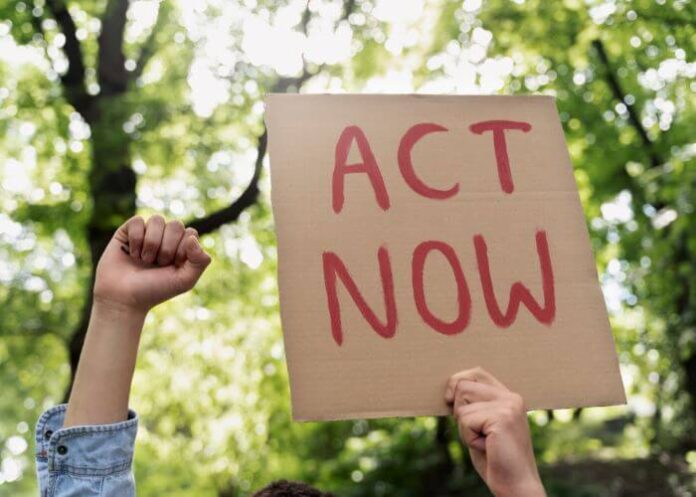In the shadows of the modern world, a heinous crime lurks, stripping away the dignity and freedom of countless individuals – modern slavery. This grave human rights violation, marked by coercion, deception, and exploitation, affects millions of people worldwide, making it one of the most pressing challenges of our time.
In the quest to eradicate this abhorrent practice, governments and societies are coming together to take decisive action. One such pivotal legislative effort is the Modern Slavery Act. The Modern Slavery Act was put in place to address the menace of modern slavery. It serves as a comprehensive and robust response to combat this deplorable trade in human lives.
The Act, with a notable example in the United Kingdom, embodies a commitment to protect human rights, ensure justice for victims, and hold perpetrators accountable. It represents a critical milestone in the global fight against modern slavery, setting a precedent for other nations to follow.
If this has always been your concern or perhaps you are hearing about this for the first time, let’s take a dive into this subject to help you understand all you need to know.
Understanding Modern Slavery: A Grave Human Rights Violation
Modern slavery, a deeply troubling and abhorrent practice, inflicts immeasurable suffering on millions of people around the world. It is an egregious violation of fundamental human rights, perpetuating exploitation, oppression, and degradation.
Modern slavery takes various forms, each leaving a lasting impact on its victims. Forced labor is one prevalent manifestation, where individuals are coerced into working against their will, often in deplorable conditions and for little or no pay.
Human trafficking, another form of modern slavery, involves the recruitment, transportation, or harboring of people through force, fraud, or deception, with the purpose of exploiting them for labor or sexual servitude.
Victims of modern slavery often endure physical and psychological abuse, with their freedom and autonomy stripped away. They suffer in silence, hidden from the eyes of the world, trapped in a web of exploitation that seems impossible to escape. Their cries for help are often stifled by fear, manipulation, and the absence of viable alternatives.
Modern Slavery Can Affect Anybody
Modern slavery knows no borders, affecting individuals from diverse backgrounds and in various countries. It thrives in the shadows of society, in industries ranging from agriculture and manufacturing to domestic work and sex trade.
Because of the complexity of this issue, there is always a need for a multi-faceted response to fight it. This includes cooperation between governments, law enforcement agencies, civil society, and businesses. However, understanding the gravity of modern slavery is the first step towards combating it effectively.
The fight against modern slavery requires unwavering determination and a commitment to safeguard the rights and dignity of every human being. And that is where the modern slavery act comes into play.
The Modern Slavery Act UK: A Comprehensive Legislative Response
In the face of the alarming prevalence of modern slavery, the United Kingdom took a momentous step towards combating this grave human rights violation with the enactment of the Modern Slavery Act in 2015.
Recognizing the urgency and complexity of the issue, this comprehensive legislative response was designed to address all aspects of modern slavery, from prevention and protection to prosecution and partnership.
The Modern Slavery Act UK is hailed as one of the most robust and pioneering pieces of anti-slavery legislation globally, reflecting the nation’s commitment to upholding human rights and safeguarding the vulnerable. It encompasses a range of provisions that have fundamentally altered the landscape of the fight against modern slavery.
Some Ways the Modern Slavery Act Helps Combat Modern Slavery
#1: Defining Offenses
The Act introduces new offenses and extends existing ones, criminalizing actions related to modern slavery, human trafficking, forced labor, and exploitation. This expansion empowers law enforcement agencies to more effectively investigate and prosecute those responsible for perpetrating these crimes.
#2: Transparency in Supply Chains
The Modern Slavery Act UK places a duty on companies with an annual turnover above a specified threshold to publish annual statements outlining the steps taken to combat modern slavery in their supply chains and operations. This transparency measure encourages businesses to take a proactive approach in identifying and addressing potential risks of slavery within their operations.
#3: Independent Anti-Slavery Commissioner
The Act established the role of the Independent Anti-Slavery Commissioner, a vital figure responsible for driving the UK’s efforts to tackle modern slavery. The Commissioner coordinates actions across various agencies, providing strategic leadership and enhancing the collaboration needed to tackle this complex issue.
#4: Protection for Victims
Recognizing the importance of supporting victims of modern slavery, the Act introduces enhanced measures to safeguard and assist them. It established the framework for the modern slavery victims’ support system, ensuring that victims receive the necessary care, protection, and access to justice.
#5: Global Impact
Beyond its national significance, the Modern Slavery Act UK has set an example for other countries to follow. It has inspired similar legislative efforts worldwide, encouraging other nations to join hands in the fight against modern slavery.
Final Note
As a trailblazer in the fight against modern slavery, the Modern Slavery Act UK has left an indelible mark on the global stage. It serves as a beacon of hope, demonstrating that concerted legislative action and collective commitment can make a substantial difference in addressing one of the darkest issues of our time.
As nations continue to emulate the UK’s example, the world edges closer to a future where the shackles of modern slavery are broken, and the inherent dignity of every human being is cherished and protected.







